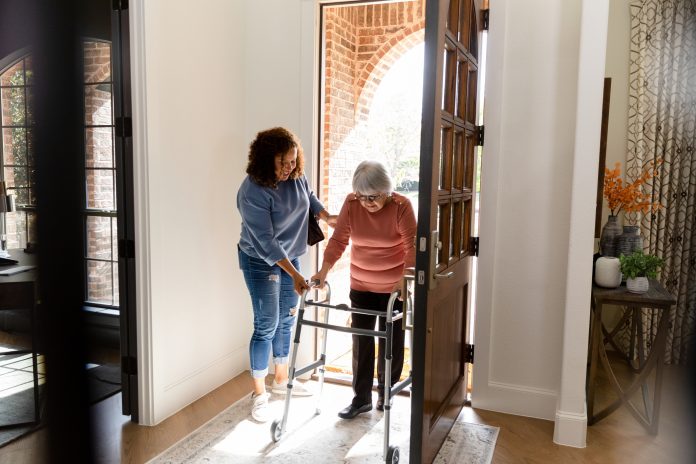The report aims to help ICS leaders enhance collaboration between housing and health sectors across East England to address the root causes of poor health and improve overall community health outcomes
Healthy life expectancy in the East of England surpasses the national average of 63.5 years, with men living an average of 64.6 years and women 65.0 years in good health. However, significant disparities exist within the region.
Demand for supported housing from an ageing population
For instance, Luton has a life expectancy that is 5.2 years lower than the East of England average, whereas Central Bedfordshire exceeds this average by 2.3 years. The region also experiences a higher-than-average dependency ratio, characterised by a greater proportion of its population aged under 15 and over 65, relative to those aged 15-64.
As the population continues to age and more individuals live longer with complex health and care needs, the demand for supported housing and related services is increasing.
Key principles for Integrated Care Systems
The Healthy Homes report, published by the East of England Local Government Association (EELGA) in collaboration with Public Health East of England, the East of England All Party Parliamentary Group, and IMPOWER Consulting, outlines five guiding principles for Integrated Care Systems (ICSs) to consider in their strategies for improving health and housing outcomes.
These principles emphasize the importance of developing a shared understanding of the health and housing issues, aligning strategies across various sectors, engaging a diverse range of partners, clarifying roles and responsibilities, and ensuring that strategic objectives lead to actionable outcomes at the community level.
NHS Core20plus5 programme
Additionally, the report advocates for ICSs to support the implementation of the NHS Core20plus5 programme, ensuring that health and housing initiatives are coordinated to effectively tackle health inequalities.
Cllr Jacqui Taylor, Portfolio Holder for Housing and Inclusion at St Albans District Council and Lead Member for Housing at EELGA, commented: “A safe, warm, affordable and stable home is fundamental to achieving better health outcomes and this report demonstrates that by integrating housing strategies with public health efforts, we can reduce inequalities and build healthier, more resilient communities.
“The consequences arising from the growing pressures facing health and housing services are now greater than ever and the shared commitment of local councils, housing agencies and health organisations in the East of England is a significant step towards driving systemic change.”
Quality of housing can have a big impact on people’s health
Prof. Aliko Ahmed, Regional Director of Public Health for the East of England, commented: “Housing is one of the most important social determinants of health. The quality and nature of housing can have a big impact on people’s health. The integration of health and housing is therefore essential to our collective endeavour towards healthier communities.
“This report offers ICSs an actionable framework to ensure that both sectors are working together to improve the health and wellbeing of communities, particularly those facing the greatest challenges.”
Sarah Davis, Senior Policy and Practice Officer, Chartered Institute of Housing (CIH), commented: “At CIH we are committed to ensuring that housing professionals can maximise the role they have in effective health and housing strategies to support the wellbeing of tenants and residents. It is really encouraging to see that health and local government partners are also keen to develop this work with this publication.
“The guiding principles and collaborative tools in this report will enable more examples of integrated working, focused around people, communities and systems.”
Collaborative working
Emma Palmer, Chair of BuildEast and Chief Executive of Eastlight Community Homes, commented: “Health and housing providers, alongside local government, must work together if we are to improve the health and wellbeing of our residents and communities.
“The Healthy Homes report, led by the East of England Local Government Association (EELGA), is a positive step forward to aligning sector strategies and supporting Integrated Care Systems in our shared mission to improve public health.
“As Chair of BuildEast and Chief Executive of Eastlight Community Homes, I look forward to further collaborating with EELGA, our partners and peers. Together, we can take a local approach to reduce health inequalities and deliver better outcomes for people across our region.”
Sean Hanson, CEO of IMPOWER, commented: “Housing and health must be viewed as interconnected. By focusing on preventative interventions, ICSs can improve health outcomes and reduce long-term healthcare costs, while building sustainable, inclusive communities. We are very proud to have worked with partners on this important research and report.”











